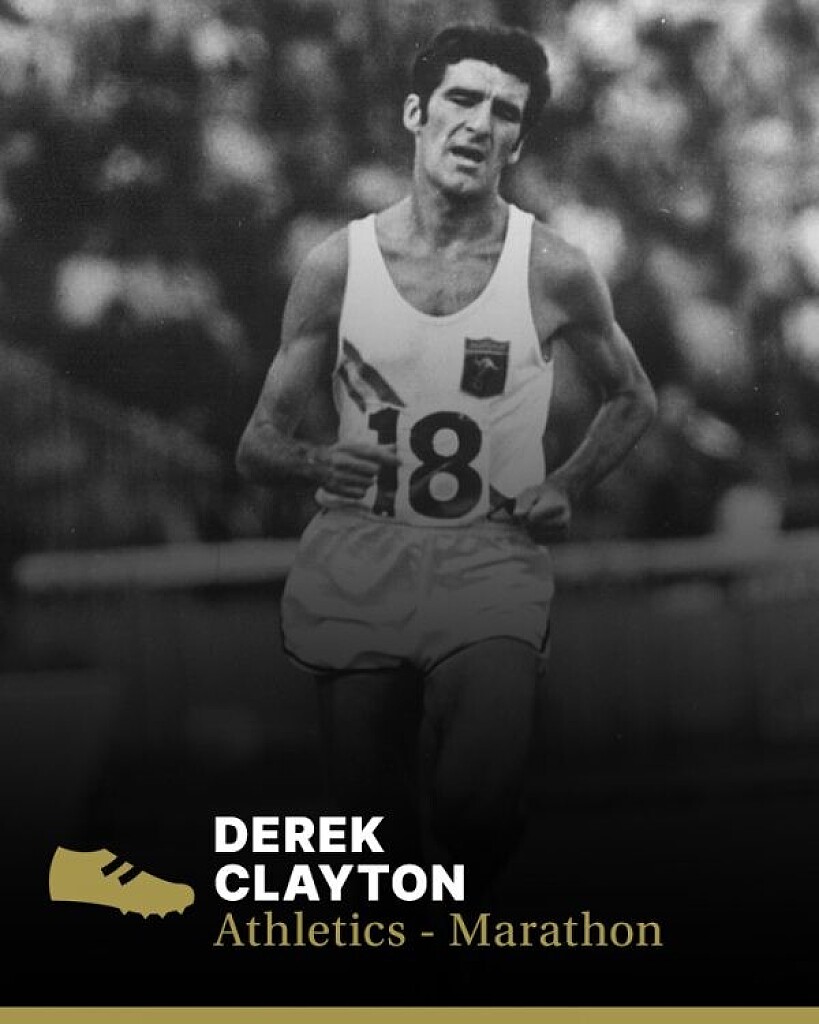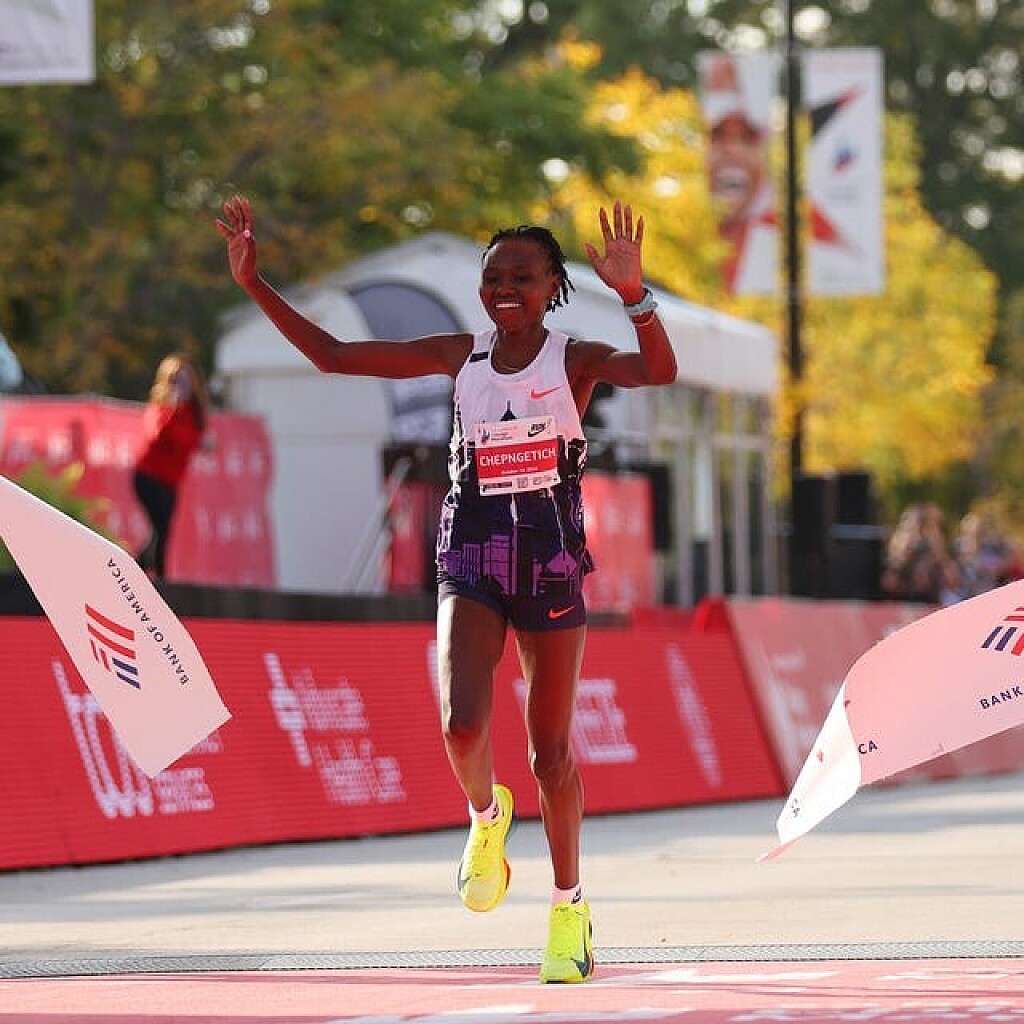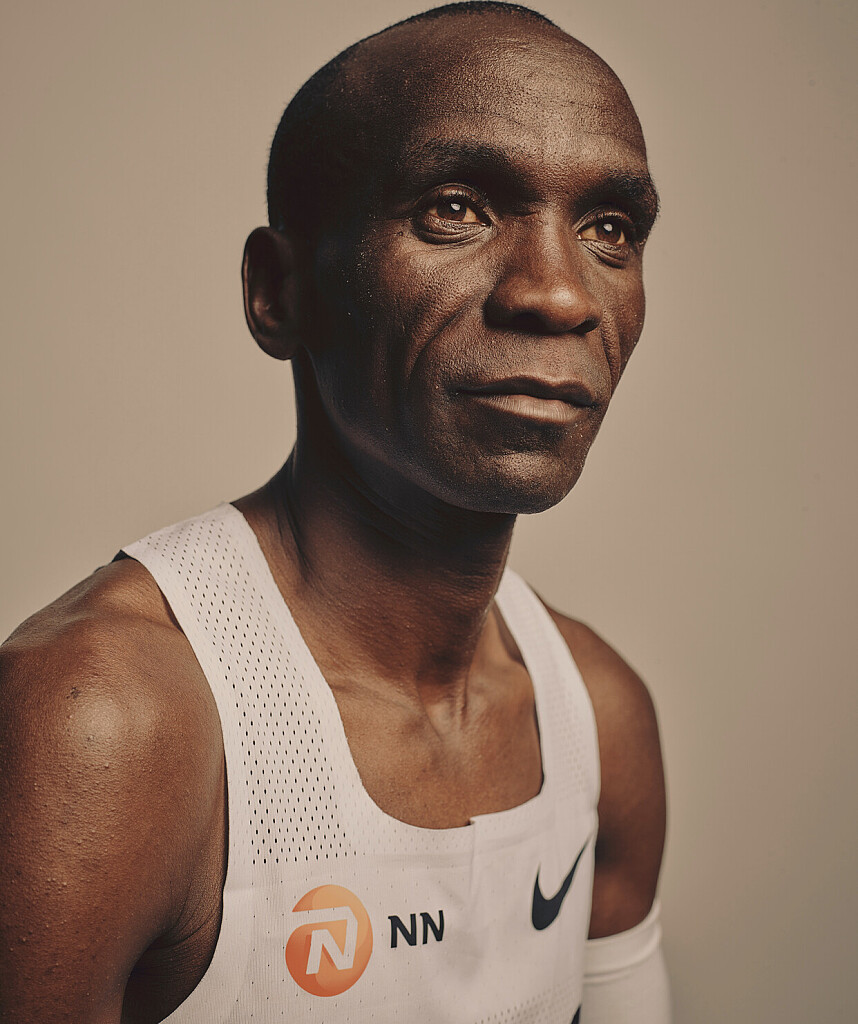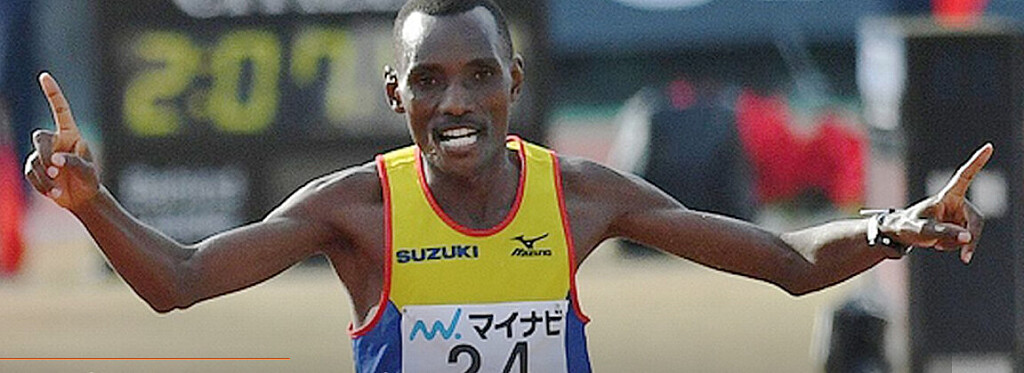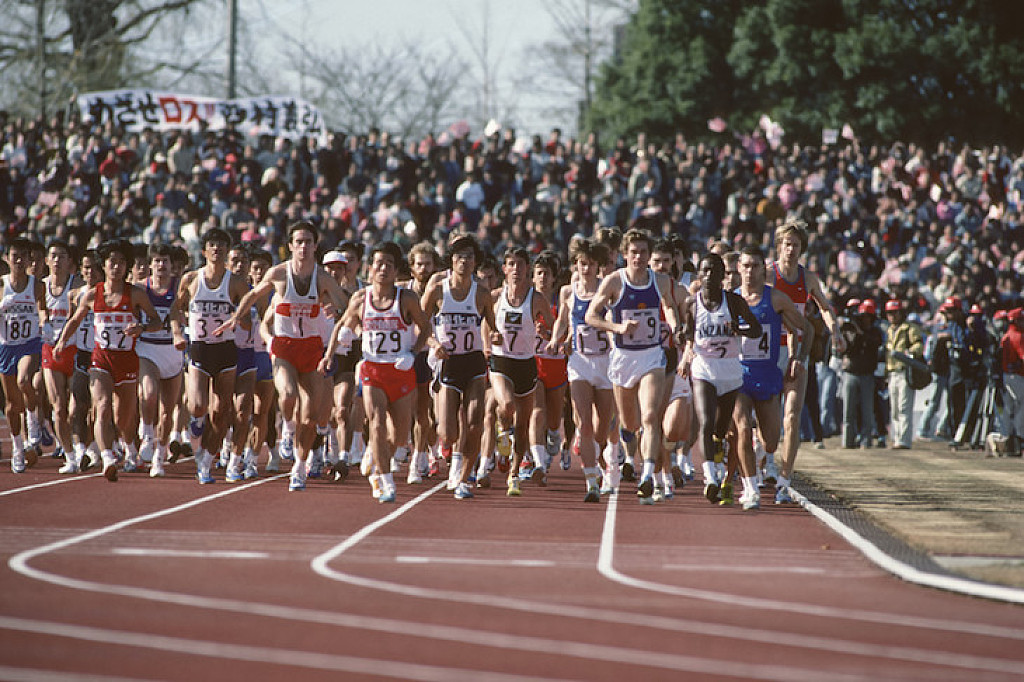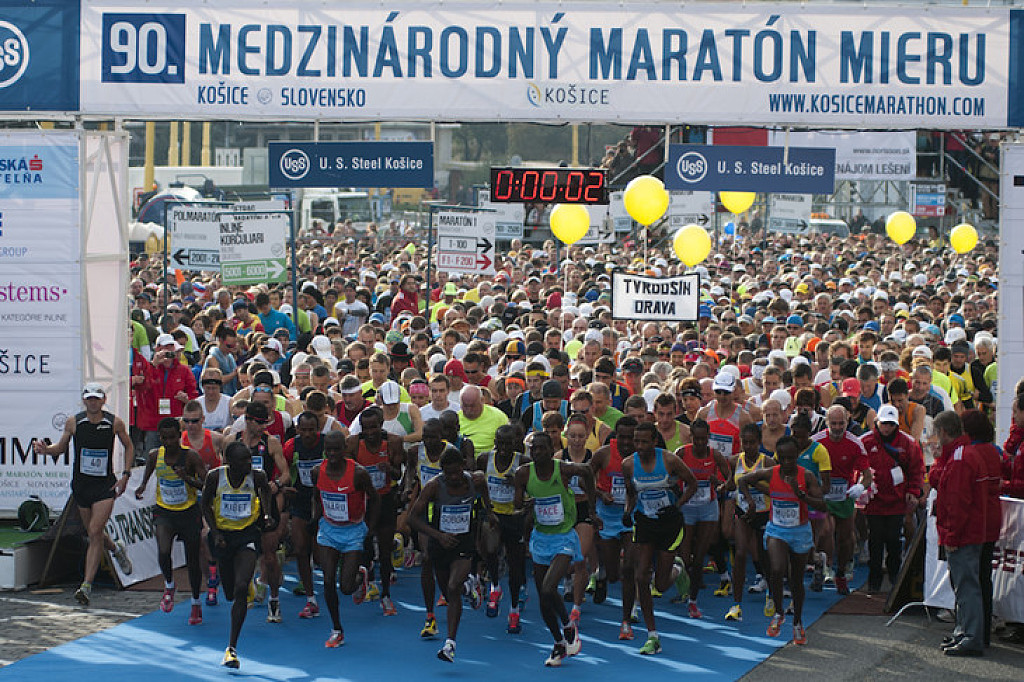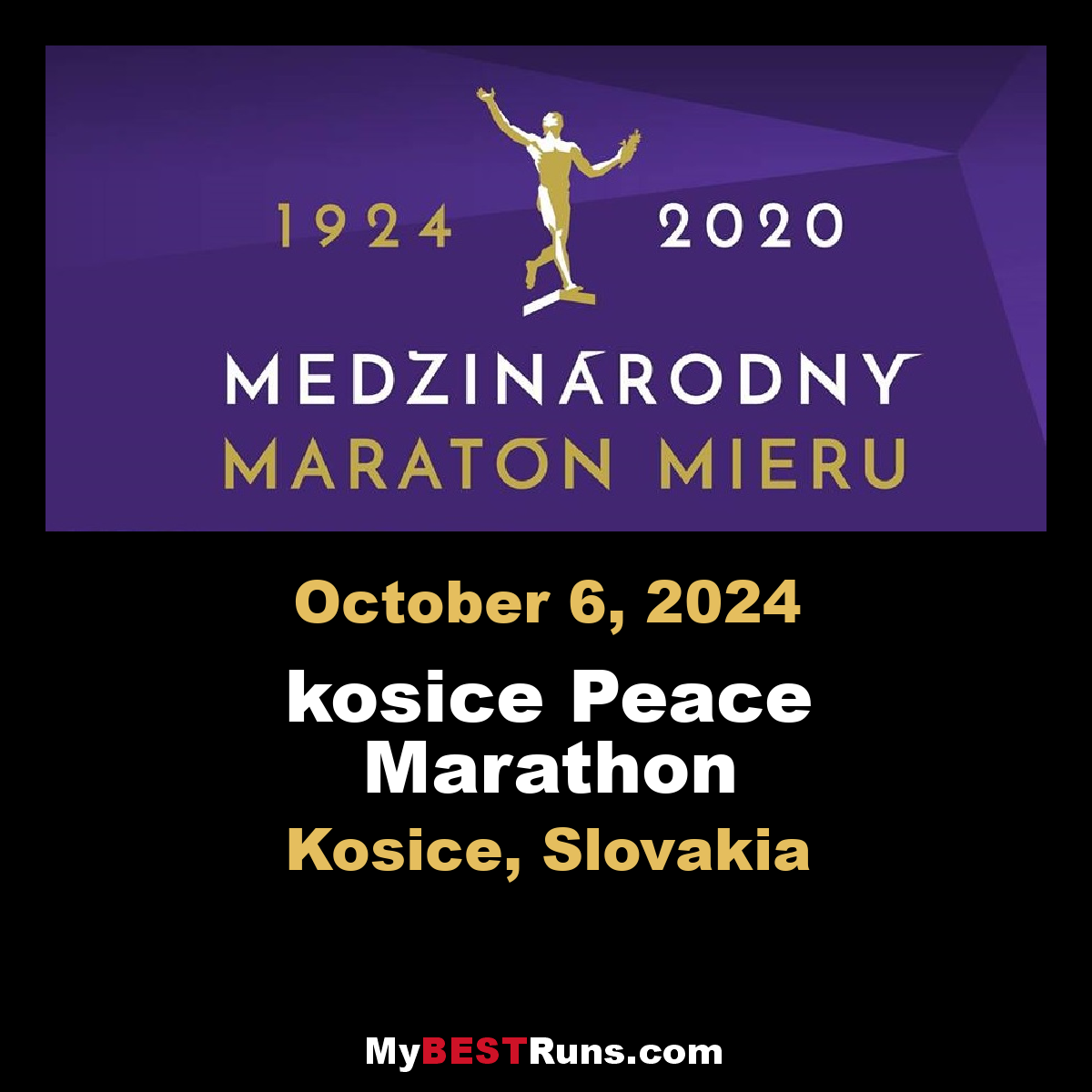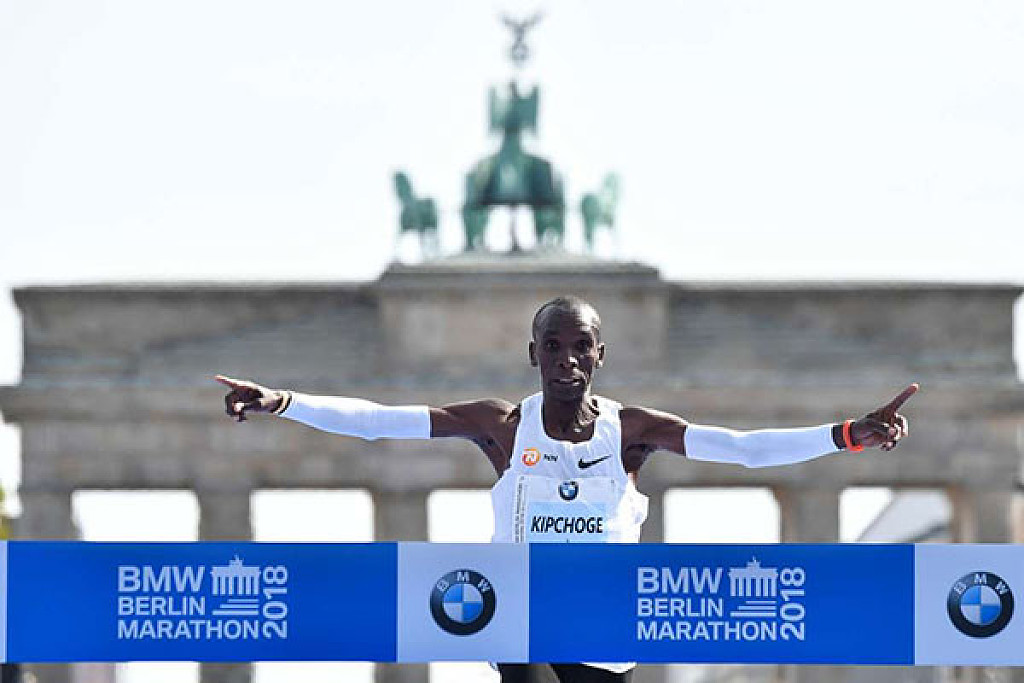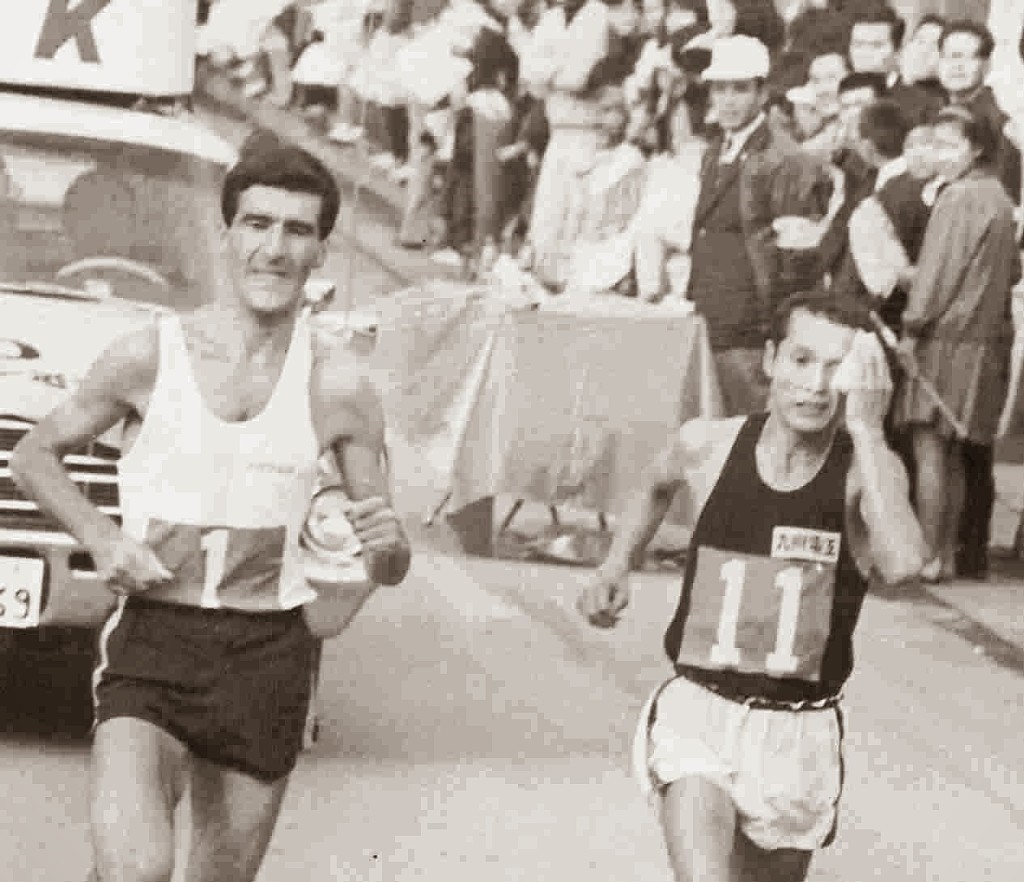Running News Daily
Running News Daily is edited by Bob Anderson. Send your news items to bob@mybestruns.com Advertising opportunities available. Train the Kenyan Way at KATA Kenya and Portugal owned and operated by Bob Anderson. Be sure to catch our movie A Long Run the movie KATA Running Camps and KATA Potato Farms - 31 now open in Kenya! https://kata.ke/
Index to Daily Posts · Sign Up For Updates · Run The World Feed
Articles tagged #Derek Clayton
Today's Running News
The Evolution of Marathon Running: A Kenyan Perspective
I can still vividly remember when 2:08:32 in the marathon seemed like an unbreakable barrier. Derek Clayton of Australia set this world record back in 1969 at the Antwerp Marathon—a time so remarkable that it stood for nearly 12 years. Now, hundreds of runners have far surpassed that mark. Today, running a sub-2:05 marathon has become almost routine, particularly for athletes from Africa.
On the women’s side, the achievements are just as groundbreaking. Ruth Chepngetich of Kenya recently made history at the 2024 Chicago Marathon by breaking the 2:10 barrier, finishing in a stunning 2:09:56. While this remarkable time is still awaiting ratification, it is set to redefine the boundaries of women’s marathon running. This performance follows the previous world record of 2:11:53, set by Tigst Assefa of Ethiopia at the 2023 Berlin Marathon. These times show just how far women’s marathon performances have progressed in recent years.
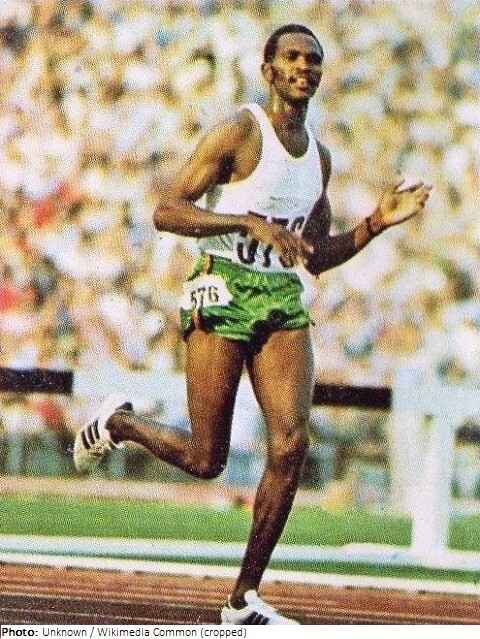
While advancements like “magic” shoes have undoubtedly played a role in these extraordinary performances, it’s important to note that better pacing by other professional runners, now a standard practice, has also made a significant difference. These pacesetters help keep athletes on target through much of the race, ensuring consistency and reducing mental strain. However, the story of record-breaking runs runs much deeper than technology and pacing strategies.
In Kenya alone, there are at least 80,000 distance runners who dream of nothing else but becoming professional athletes. For them, running isn’t just a passion—it’s a path to success and stability.
At the Kenyan Athletics Training Academy (KATA), the training camp I established in Thika, Kenya, we house, feed, and train aspiring athletes. I Each week, I receive messages from 10 or more runners hoping to join our program. For these athletes, running is not a hobby or a pastime. It’s a career aspiration, with the ultimate goal of winning races and securing prize money. They love running, but make no mistake—their drive is fueled by the potential to achieve financial security and support their families.
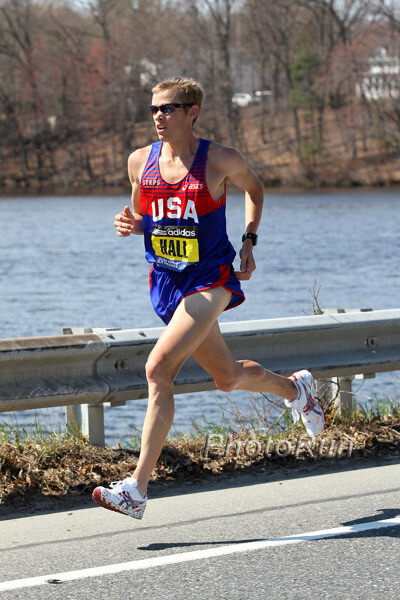
Contrast this with the United States, where very few runners train with the sole focus of becoming professional athletes. Instead, many children grow up dreaming of careers in sports like baseball, basketball, football, or, more recently, soccer. The talent pool for these sports is massive, and from this base, the superstars emerge.
That said, American marathoners have delivered incredible performances. Ryan Hall’s 2:04:58 at the 2011 Boston Marathon remains a monumental achievement, showcasing what U.S. athletes are capable of on a favorable course. On the women’s side, runners like Keira D’Amato (2:19:12) and Emily Sisson (2:18:29, an American record) are setting new benchmarks, proving that the U.S. can compete at the highest levels.
In the U.S., running is often a lifestyle choice rather than a career ambition. Recreational and “fun” runners dominate the scene, which has its benefits—contributing to a higher average life expectancy (76 years in the U.S. compared to 63 in Kenya). In Kenya, it’s rare to see runners over 40 years old out training. The focus there is on younger athletes whose primary goal is to make a living through running.
For many in Kenya, running is the equivalent of pursuing a high-paying job in other fields. This mentality dates back to pioneers like Kip Keino, who opened the door for countless Kenyan athletes to achieve global success. His legacy inspired generations, and today, Kenyan runners—both men and women—continue to push the limits of human potential.
As marathon times keep dropping and prize money continues to grow, I believe we’ll see even faster performances from both men and women—especially in Africa, where running is deeply ingrained as a pathway to opportunity.
by Bob Anderson
Login to leave a comment
MARATHON GROUNDBREAKERS
Since Australia’s Derek Clayton ran history’s first sub—2:10 marathon in Fukuoka, Japan, on 3 December 1967, there have been a total of 4538 sub—2:10 marathons (as of 30 October 2024), 4537 by men, one by a woman.
As with any new ground-breaking performance, Ruth Chepngetich’s 2:09:56 in Chicago on 13 October has forced us to reassess all our past assumptions, or, like many, to doubt the validity of the performance itself. But no matter how we got here, to whatever you want to ascribe it, this is where we are now, 2:09:56 by a woman.
In this new reality, until proven otherwise, Ruth Chepngetich is the new Paula Radcliffe, just as Paula was the new Grete Waitz, one ground-breaker to the next, 1978 to 2003 to 2024.
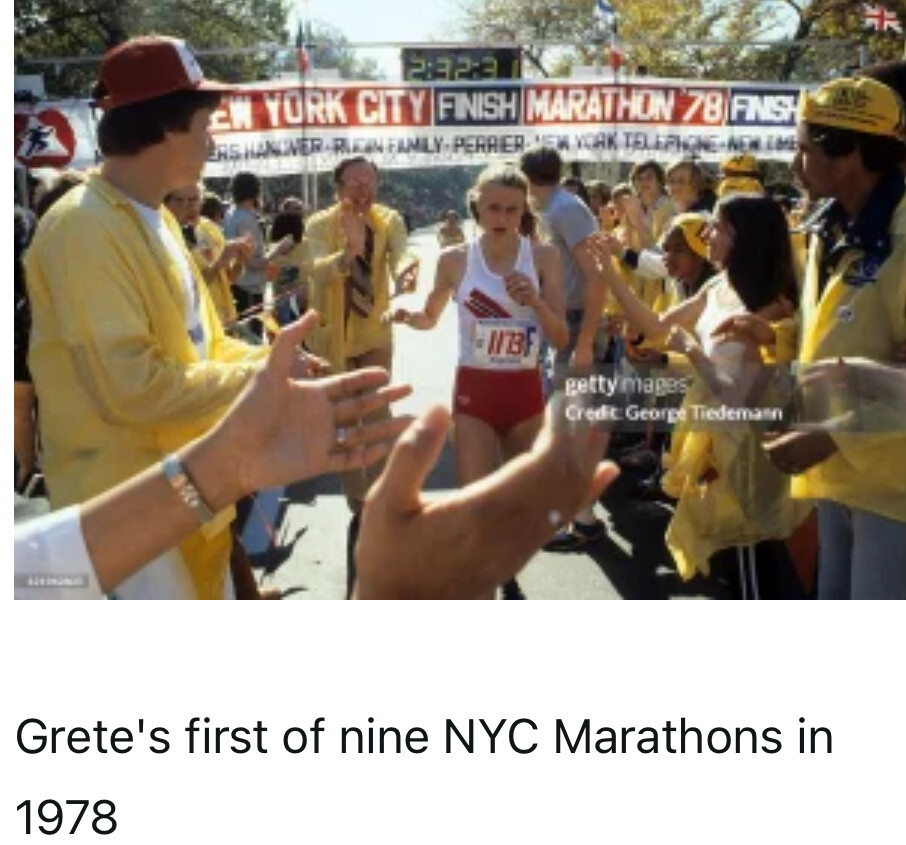
There have been many talented women champions through the years besides those three, including all the pioneers who had to overcome centuries of gender bias that restricted women from even showing their stuff.
But in terms of pure ground-breaking, the 1978 New York City Marathon drew a bright line between what once was and what would be.
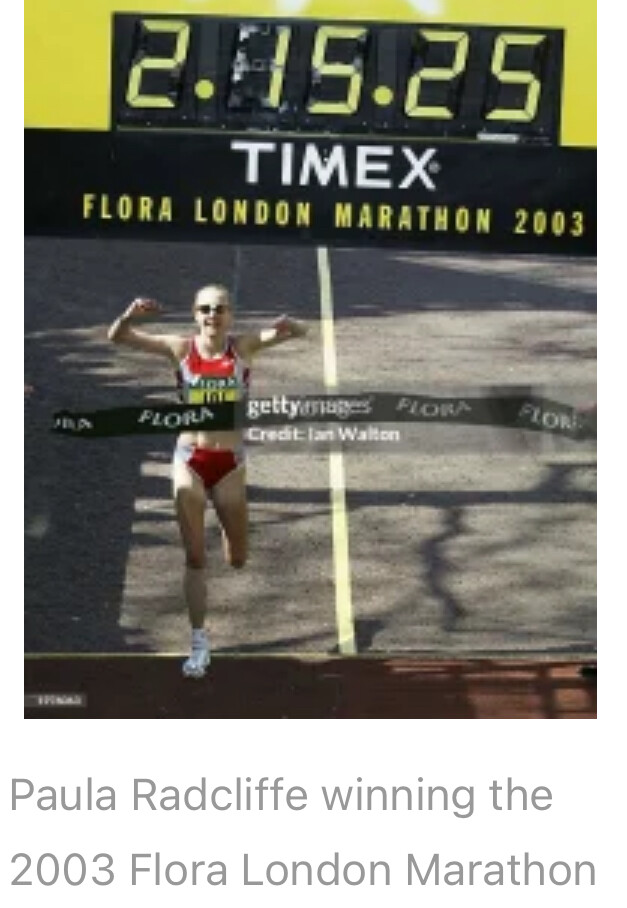
On 22 October 1978, Norway’s track and cross-country star Grete Waitz participated in the marathon for the first time, almost on a whim, as the trip was more of a honeymoon for her and husband Jack after the long track season.
The 2:32:30 world record Grete ran that day was totally unexpected by both the public and Grete herself. She wore bib #1173, wasn’t included on the list of elite women, and came with no specific marathon preparation (not a single run over 13 miles). In fact, she was so upset with husband, Jack, for suggesting she come run the marathon that she threw her shoes at him in the hotel room following her victory.
Still, like almost all debuting marathoners, after a short period of recovery and reflection, Grete concluded she could probably improve next time.
Thus, in New York 1979, following a more careful preparation, Grete ripped nearly five full minutes off her 1978 mark to record history’s first sub—2:30 by a woman at 2:27:33. Her margin of victory over England’s Gillian Adams was 11 minutes (2:38:33). The combination of the mild-mannered former geography teacher from Oslo and the raucous New York City crowds proved transformative, elevating women’s running to heights previously unimagined.
Though Japan’s Naoko Takahashi broke the 2:20 barrier for women in Berlin 2001, after Norway’s Ingrid Kristiansen (2:21:15, London ‘85), America’s Joan Benoit Samuelson (2:21:21, Chicago’85), and Kenyan Tegla Loroupe (2:20:43, Berlin ‘99) all challenged the barrier in the 1980s and ‘90s, it was England’s Paula Radcliffe who established new headlands in the marathon in London 2003 with her 2:15:25.
Nearly two minutes faster than her own 2:17:18 record from Chicago the year before, her 2:15 arced away from Catherine Ndereba’s 2:18:47 from Chicago 2001, completed just one week after Takahashi’s first sub-2:20 in Berlin.
The quality of Paula’s 2:15 can be seen in the 16 years and an entire shoe technology revolution that developed before Kenya’s Brigid Kosgei did Paula one better in Chicago 2019 at 2:14:04. That performance plowed new ground again. And now we have Ruth Chepngetich in Chicago 2024 with history’s first sub-2:10, just a year after Ethiopia’s Tigst Assefa’s first sub—2:12 in Berlin `23 (2:11:53).
Twice before, Chepngetich had come to Chicago with world record intentions. In 2022, she won the race in 2:14:18, just 14 seconds off Kosgei’s record. In 2023 she finished second in 2:15:37. On both occasions she flew through halfway under 66 minutes, only to falter in the second half. Perhaps she was a close reader of Malcolm X.
“There is no better teacher than adversity. Every defeat, every heartbreak, every loss, contains its own seed, its own lesson on how to improve your performance the next time.” – Malcolm x
In simple terms, making innovative strides in athletics requires time, experimentation, and reviewing, similar to how new scientific theories are examined before full acceptance. But women just haven’t been at the marathon game long enough to produce a large enough sample size to define their outer limits with any accuracy. They are barely two generations in since 1978.
Men have been competing for a much longer time with a much larger sample size.
Though Eliud Kipchoge surpassed the two-hour barrier in Vienna in 2019, that was accomplished as an exhibition, not a sanctioned race. In that sense, we are still awaiting the next barrier breaker on the men’s side in the Marathon.
Looking back, England’s Jim Peters stands as the first modern barrier breaker with his 2:18:40 win at the 1953 Polytechnic Marathon between Windsor and Chiswick in West London, England, history’s first sub—2:20.
Next was Ethiopia’s Abebe Bikila, the legendary double Olympic victor in Rome 1960 and Tokyo 1964. His 2:15:17 in Rome still stands as the barefoot marathon world record.
Next came Australia’s Derek Clayton, the first man under both 2:10 and 2:09. His 2:08:34 from Antwerp 1969 lasted for 12 years, holding off challenges throughout the entire Running Boom era headed by Americans Frank Shorter and Bill Rodgers.
Though never world record holders, the two Americans dominated the 1970s boom era, Shorter through the first half, Rodgers the second.
The Eighties were the last decade of international marathon champions: American (Al Salazar, Greg Meyer); European (Steve Jones, Carlos Lopes); Japanese (Toshihiko Seko and the Soh brothers); and Australian (Rob de Castella). Kenya’s Joe Nzau won Chicago in 1983 in a thrilling duel with England’s Hugh Jones when Chi-town was still developing its reputation as a world class event.
Ibrahim Hussein set new records in Honolulu and kick-started the Kenyan marathon revolution
The full East African deluge didn’t begin until 1987 and ‘88 when Kenya’s Ibrahim Hussein (already a two-time and soon to be three-time Honolulu Marathon champion) became Africa’s first New York City and Boston Marathon winner and Ethiopia’s Belayneh Dinsamo set the world record, 2:06:50, in Rotterdam 1988 that lasted over a decade.
The list of marathon stars from other nations scaled back markedly in the 1990s. Mexico had its turn at the top via greats like Dionicio Cerón (1994-`96 London champion), and back-to-back New York Ciy winner German Silva (1994 & 1995).
Moroccan-born American Khalid Khannouchi twice ran a world marathon record, first in Chicago 1999 (2:05:42), then three years later in London 2002 (2:05:38). And who could forget the personable Brazilian, Marílson Gomes dos Santos, who won New York City twice in 2006 & 2008, or Meb in NYC `09 and Boston 2014??
But the United Nations pickings get rather meager after that as East African athletes have had a stranglehold on the sport of marathoning, most dominatingly by Kenya’s Eliud Kipchoge. His run of sustained excellence over 42.2 kilometers was, and is, unprecedented in its longevity, including double gold in Rio 2016 and London 2020. And his last world record of 2:01:09 in Berlin 2022.
Sadly, the current record holder, Kelvin Kiptum, died in a car accident in February 2024 after establishing the 2:00:35 world record in Chicago 2023.
With the 2024 TCS New York City Marathon scheduled this weekend, we don’t expect to see any record performances. Yet, all the above is why we follow the game, isn’t it, to witness the arc of improvement over time, while hoping to discover a new name to remember? It’s as valid a focus as any other in this life.
And despite its many flaws and corruptions, the sport of marathoning retains an innate dignity that many endeavors do not. People may have bruised, battered, and tarnished it in the name of glory and money. But it survives, nonetheless, as a simple reflection of the human drive to achieve more in the quest to discover our best.
Doesn’t always turn out that way, but I don’t think we are done with it quite yet. Onward!
by Toni Reavis
Login to leave a comment
Eluid Kipchoge will lose $200,000 with the Abbott World Marathon Majors drastic reduction of prize money but this is not right says MBR publisher
Two days after Eliud Kipchoge clocked a 2:01:09 world record in Berlin, the Abbott World Marathon Majors announced on Tuesday a drastic reduction in the series’ prize money for runners.
Abbott, currently a $45 billion dollar global healthcare company based in Illinois, was the first title sponsor of the World Marathon Majors.
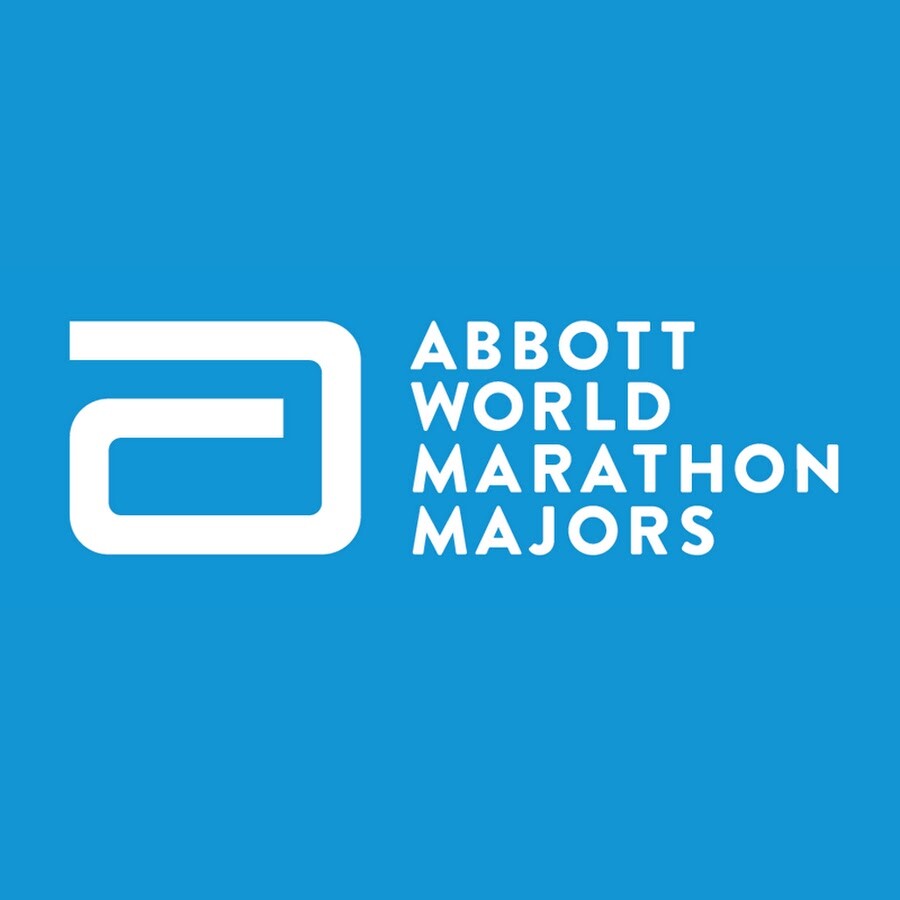
Let's Run posted this: "The change will take effect immediately, applying to the current series, which began at the Tokyo Marathon in March (starting this year, the WMM seasons are based on calendar years rather than the multi-year format of years past). As a result, Kipchoge, who has all but locked up the 2022 WWM Series title, will receive $200,000 less for his efforts.
When the World Marathon Majors — which consists of Tokyo, Boston, London, Berlin, Chicago, and New York — launched in 2006, one of its signature elements was the $500,000 prize awarded each year to the men’s and women’s series champions. In 2017, WMM altered its prize structure, reducing the grand prize to $250,000 (but adding $50,000 for second and $25,000 for third) while increasing prize money for wheelchair athletes and adding a charitable donation component of $280,000.
WMM announced that moving forward series champions will receive $50,000 each — just one-fifth of what was awarded last year and the same amount the wheelchair series champions receive. The prizes for second and third were also halved to $25,000 and $12,500, respectively, while WMM added prize money for fourth ($7,500) and fifth ($5,000). There was no mention of a charitable donation component (though the amateur runners at the World Marathon Major races raise significant money for charity each year)."
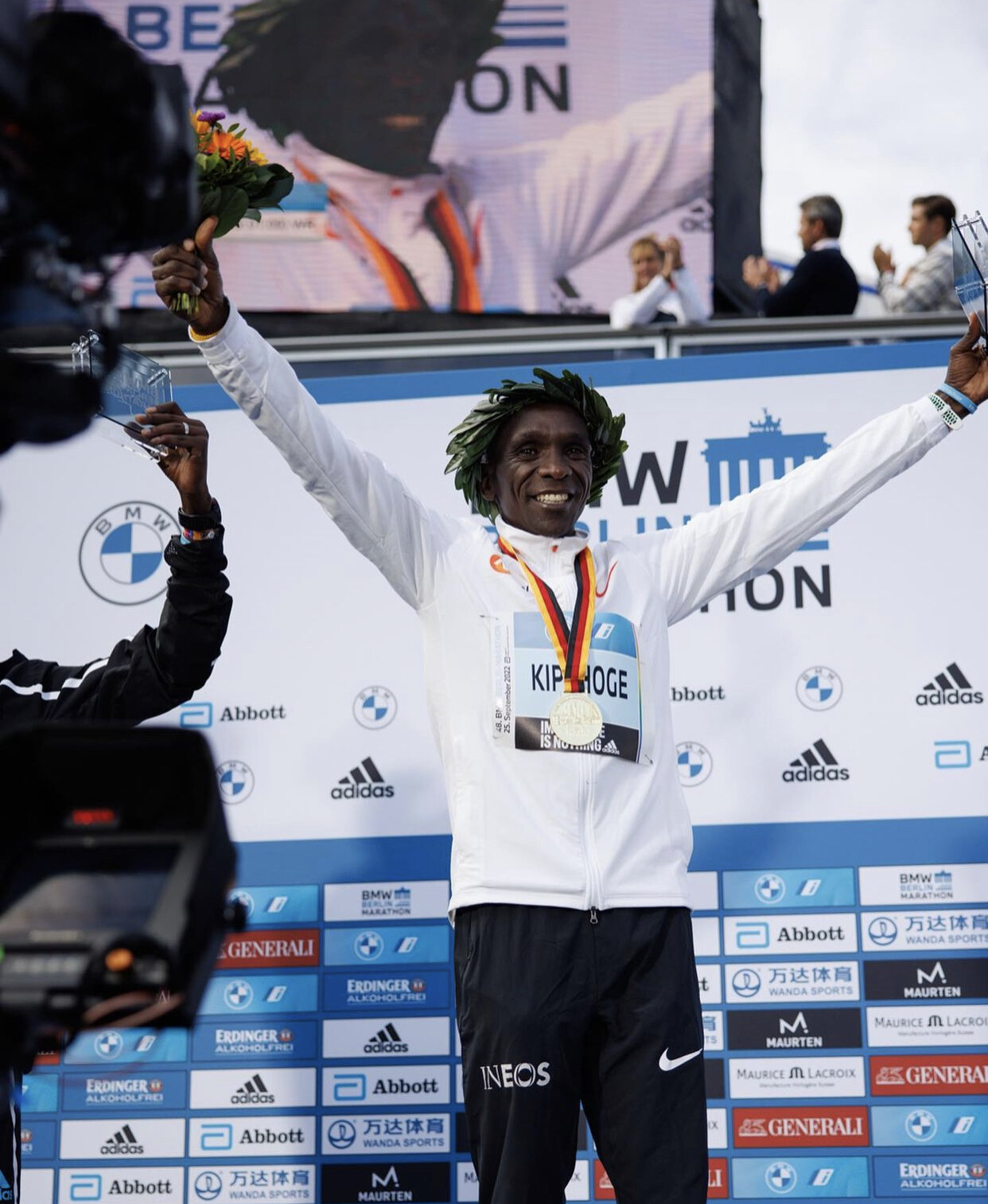
"This is not good news," says Bob Anderson, My Best Runs publisher, "but millions of dollars have been awarded over the years and maybe we should not have taken it for granted?"
"However, how can they make a change like this when it was already announced? A major change like this should not go into effect until the next season. Kipchoge should not be pentalized because Abbott decided after the fact to reduce marketing expenses or something in my opinion," says Bob.
"I do remember when my friend Derek Clayton set the world record clocking 2:08:32 May 30, 1969. He did not win any prize money. That record stood for 12 years. Or another friend Geoff Smith won the 1984 and 1985 Boston Marathon and won no prize money. Running was not a pro sport back in those days and no one was paid above the table until 1986 or so.
"Racing and for sure the Marathon offer sponsors a lot of exposure," Bob continues. "Hopefully new sponsors will come to the table. However, the economy right now is not good and expenses like this can be the first to be cut but lets think positive."
Abbott Laboratories is an American multinational medical devices and health care company with headquarters in Abbott Park, Illinois, United States. The company was founded by Chicago physician Wallace Calvin Abbott in 1888 to formulate known drugs; today, it sells medical devices, diagnostics, branded generic medicines and nutritional products.
"In 2021 Abbott (ABT) revenues were 43 billion and their income was 7 billion. However in the last six months their stock price has decreased 18.2%. Off but better than many companies," says Bob Anderson. "I wonder if this has anything to do with this decision to cut prize money but regardless Eluid Kipchoge should not lose $200,000 in the process."
Let us know your opinion.
Login to leave a comment
Githae wins final edition of Fukuoka Marathon
Michael Githae was victorious at the 75th and final edition of Fukuoka International Marathon on Sunday (5), winning the World Athletics Elite Label road race in 2:07:51.
Githae, who runs for Suzuki track team, improved his previous best of 2:08:17, which he set when finishing fourth at last year’s Fukuoka Marathon. Japan’s Kyohei Hosoya finished second, 25 seconds adrift of Githae.
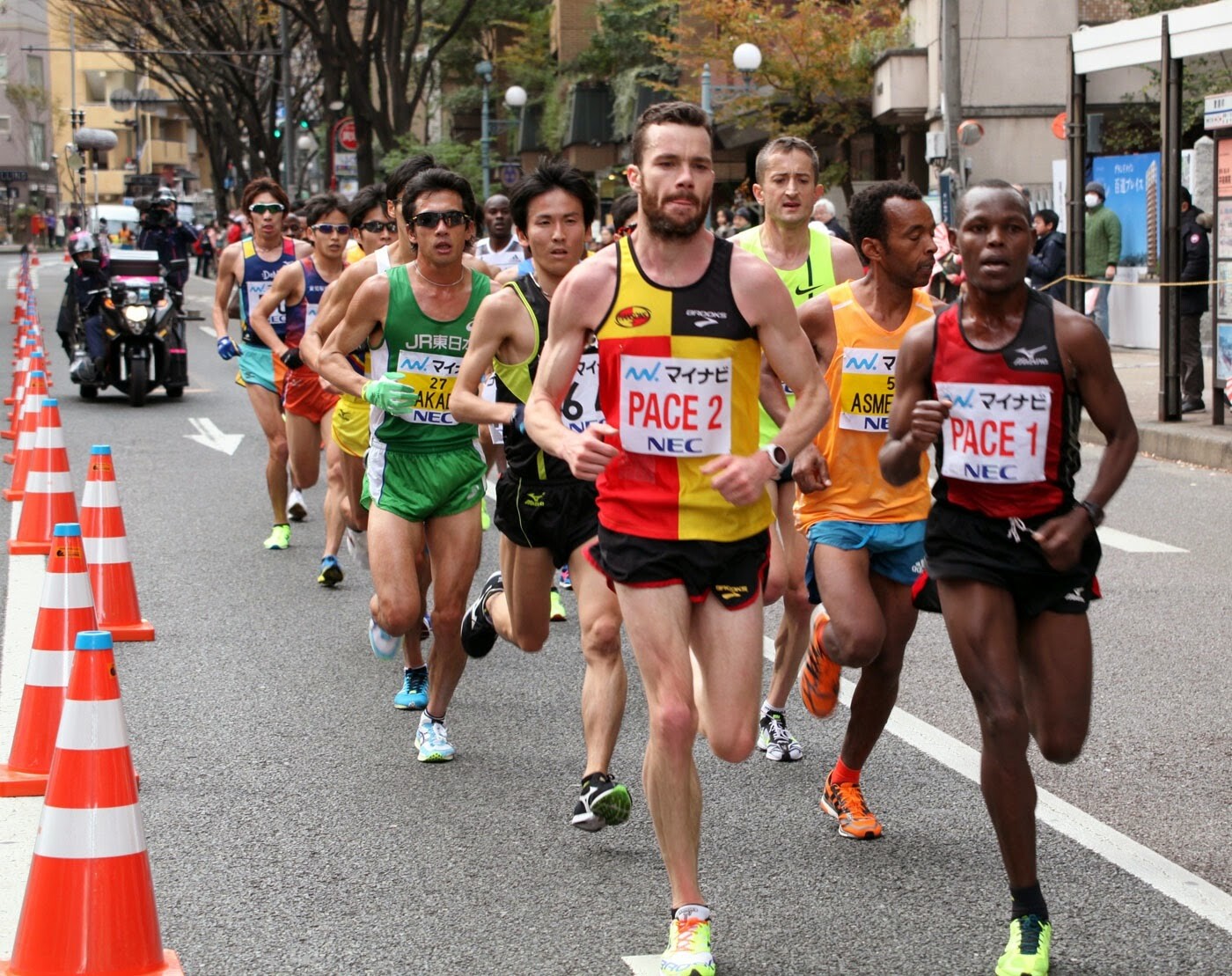
The pacers, led by 2012 Olympian Yuki Sato, directed the huge lead pack through 5km (14:47), 10km (29:39), 15km (44:30) and 20km (59:24) in what turned out to be something of a race of attrition. Yuta Shitara was one of the athletes to fall out of contention before the half-way stage; the former national marathon record-holder dropped out at 20km.
The half-way point was reached in 1:02:41, meaning an attack on the 2:05:18 course record was not out of the question. Simon Kariuki and Charles Wanjiku kept the pace going at the start of the second half, and 30km was reached in 1:29:08. But the pacemakers dropped out soon after, and the pace dramatically slowed down.
Nevertheless, the pack became strung out to almost a single file, and by 34km just Githae, James Rungaru, Hosoya and Ryu Takaku remained in contention. Soon after, Githae surged and Hosoya made a valiant effort to stay close but Githae gradually pulled away to win by 25 seconds in 2:07:51.
In third, Rungaru set a PB of 2:08:25, while fourth-placed Shohei Otsuka and Ryu Takaku and Daisuke Uekado in fifth and sixth respectively were just outside their PBs. Yuki Kawauchi, running his 12th Fukuoka Marathon, fittingly finished 12th in 2:11:33. He is planning on running the Hofu Marathon in two weeks’ time.
Looking back at Fukuoka's history
The Fukuoka International Marathon – which was awarded a World Athletics Heritage Plaque in 2019 – started in 1947 and is the second oldest marathon in Japan behind the now defunct Lake Biwa Marathon.
In its 75-year history, the world record was broken twice there – first in 1967 when Derek Clayton became the first runner to break 2:10 with 2:09:37, and then in 1981 when fellow Australian Rob de Castella ran 2:08:18.
De Castella isn’t the only global marathon champion to have contested the race over the years. Frank Shorter, the 1972 Olympic champion, notched up four consecutive Fukuoka Marathon victories between 1971 and 1974. 2000 Olympic champion Gezahegn Abera won in 1999, 2001 and 2002, while 1996 Olympic champion Josiah Thugwane won in 1997. The late Samuel Wanjiru, winner of the 2008 Olympic title, made a remarkable marathon debut in Fukuoka in 2007, winning in 2:06:39. And two-time world champion Jaoud Gharib won in 2010.
Numerous world record-holders have also competed in Fukuoka, including Haile Gebrselassie (winner in 2006), Belayneh Dinsamo (1990 winner) and Patrick Makau (2014 and 2015 champion).
Japanese runners have also enjoyed moments of victory in Fukuoka. Toshihiko Seko won four times (1978-1980 and 1983), and Takeyuki Nakayama won twice (1984 and 1987). During his 1987 run, Nakayama was on world record pace through 20km (58:37) and 35km until a heavy downpour in the closing stages slowed him down, and he eventually finished in 2:08:18.
When asked about the end of the Fukuoka Marathon, four-time winner Seko said: “It is like part of my history is being erased.”
Japan Running News, a leading authority on the sport in Japan, has produced a docu-film on the Fukuoka Marathon, entitled ‘Inside the Outside – When the World Came to Fukuoka’.
Leading results
1 Michael Githae (KEN) 2:07:512 Kyohei Hosoya (JPN) 2:08:163 James Rungaru (KEN) 2:08:254 Shohei Otsuka (JPN) 2:08:335 Ryu Takaku (JPN) 2:08:386 Daisuke Uekado (JPN) 2:08:567 Kohei Futaoka (JPN) 2:09:148 Masaya Taguchi (JPN) 2:09:359 Toshiki Sadakata (JPN) 2:10:3110 Takuma Kumagai (JPN) 2:10:4111 Ryota Komori (JPN) 2:11:3212 Yuki Kawauchi (JPN) 2:11:33
Login to leave a comment
The Fukuoka Marathon, one of the world’s oldest footraces, was awarded World Athletics Heritage status for its advancement of the track and field event
The marathon was one of six events that received the status from World Athletics on Oct. 3, and it is the fifth Japanese recipient of a Heritage Plaque under the recognition system that started in 2018.
The Asahi Shimbun is one of the organizers of the Fukuoka marathon, which was first held in 1947.
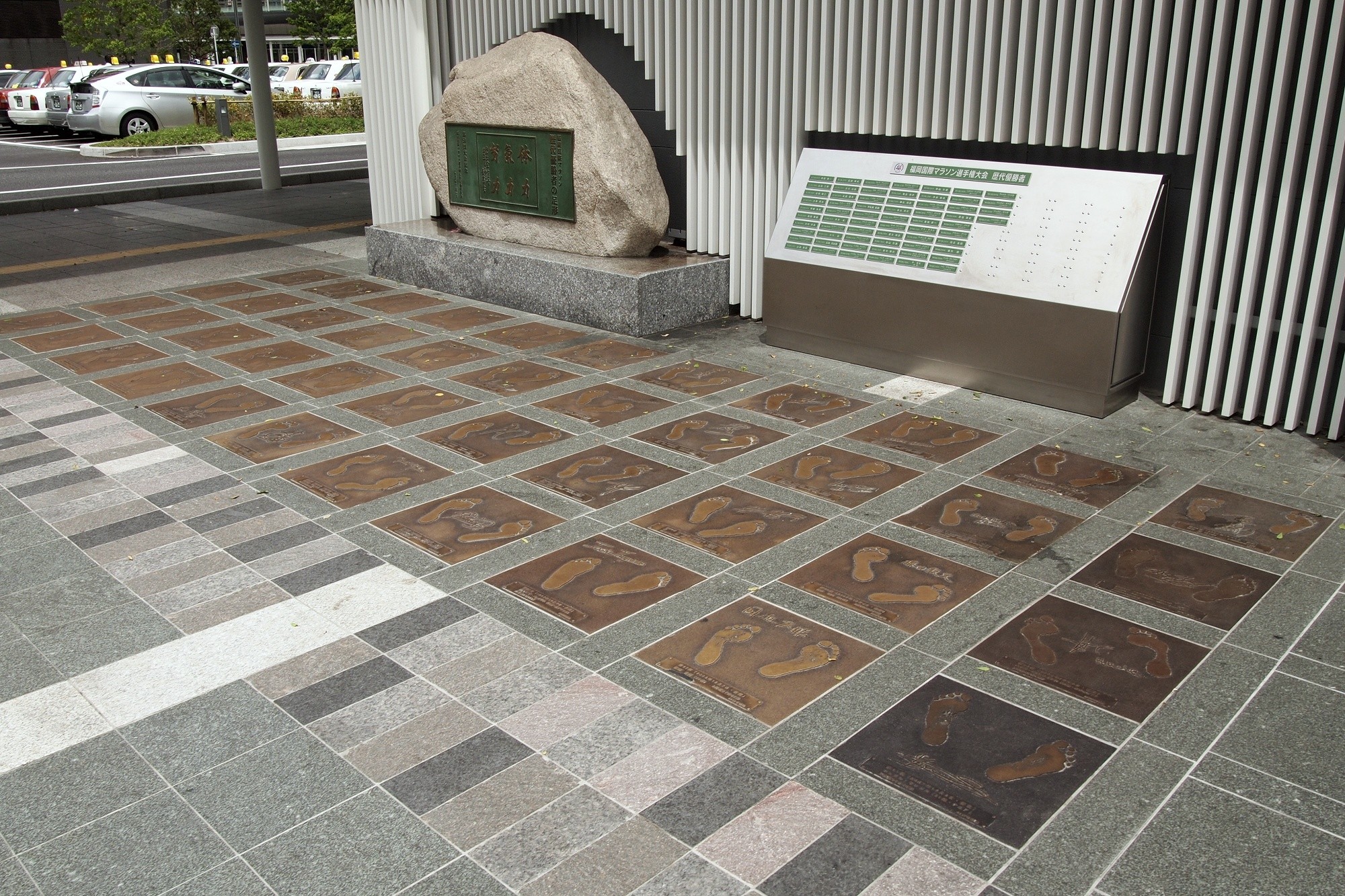
From the 1960s to the 1970s, the marathon course was praised as a high-speed track, and two world records were set in the race, including the first finish under 2 hours and 10 minutes, by Australian Derek Clayton in 1967.
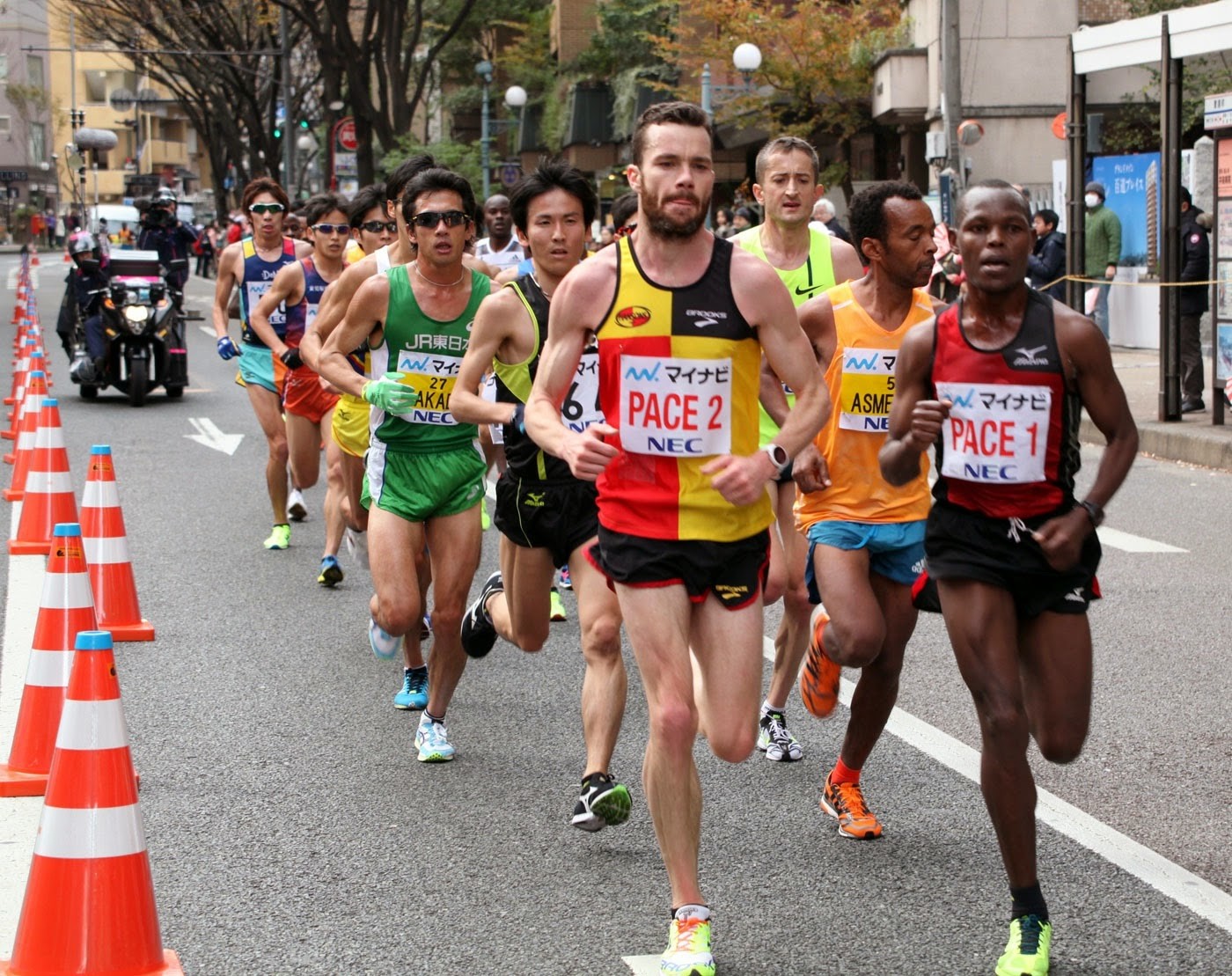
The competition was called “the effective world’s top marathon championship” at the time, and the smooth management of the event received international accolades.
In a statement, British track legend Sebastian Coe, president of World Athletics, praised the Fukuoka race for the excellent reputation it earned in the global athletics community through its long history.
Past Heritage Plaque winners from Japan are: Chuhei Nanbu, who won gold in the triple jump at the 1932 Los Angeles Olympics; the Hakone Ekiden relay marathon; Yoshio Koide, who coached Olympic marathon gold medalist Naoko Takahashi; and the Rikujo Kyogi Magazine (Track and field magazine).
Login to leave a comment
Fukuoka Marathon
The Fukuoka International Open Marathon Championship is one of the longest running races in Japan, it is alsoan international men’s marathon race established in 1947. The course record is held by Tsegaye Kebede of Ethiopia, running 2:05:18 in 2009. Frank Shorter won first straight years from 1971 to 1974. Derek Clayton set the World Record here in 1967 running 2:09:37. ...
more...There is a week to go with the 97th edition of Europe’s oldest marathon, founded in 1924
There is a week to go until the 97th edition of Europe’s oldest marathon, founded in 1924.
The Košice Peace Marathon takes place on 4 October under the auspices of the President of the Slovak Republic Zuzana ÄŒaputová and will be limited to 1000 participants for the marathon distance.
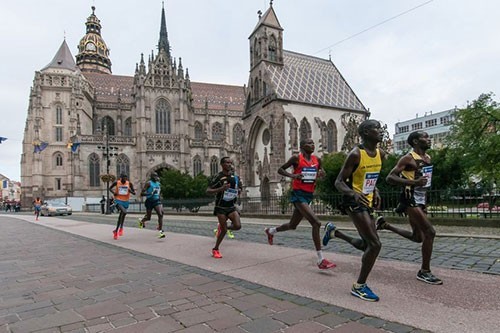
Performances in this race can count towards qualifying for the Tokyo Olympics. Leading runners are Miharu Shimokado (JPN, 2:27:54) and Viktoriya Khapilina (UKR, 2:28:03). There are a few marathon debuts in the men’s race including Mohamed Ali (NED, 1:03:09) and Pierre Denays (BEL, 1:03:54).
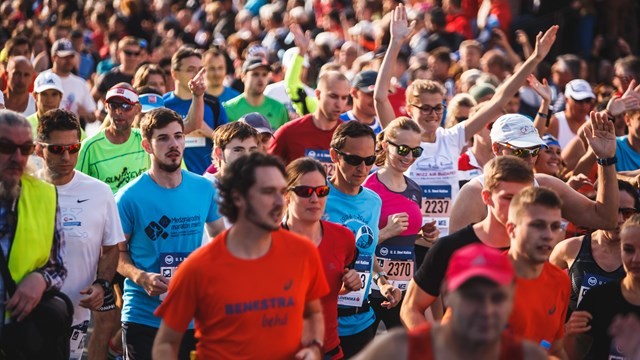
This edition of the Košice Peace Marathon is dedicated to Derek Clayton (78), the first man who ran under 2:10. He competed in Košice 50 years ago. Lochlan Clarke, a young Australian student living in Košice, will symbolically run in his footsteps.
Peter Polak (72) will run his 44th Košice Peace Marathon and there are 61 members of Diamond Club, who have each completed the Košice Marathon 25 times or more.
Login to leave a comment
kosice Peace Marathon
The Kosice Peace Marathon is the oldest European marathon.This year for the organizers of Kosice Peace Marathon is also about memories and flashbacks. One of the fastest marathon courses has been created in Košice 20 years ago on that occasion it was the 1997 IAAF World Half Marathon Champioships. Tegla Loroupe and Shem Kororia were awarded from the hands of...
more...Eliud Kipchoge smashed the World Marathon Record clocking 2:01:39 in Berlin
33-year-old Eliud Kipchoge from Kenya smashed the world marathon record in Berlin today (September 16, 2018) clocking 2:01:39, breaking the record by over a minute.
According to MBR's Willie Korir reporting from Kenya, "the pace was so high. Eliud started well and maintained 2:52-2:55/k pace. Two of the pacers dropped at 14k. Sammy Sitwara, Kipkemboe and Boit remained up to 25k. Eliud was alone from 25k to the end.
It is a big celebration all over Kenya especially in Eliud's home town of Kapsabet and in Eldoret, home of Champions."
Amos Kipruto (2:06:23) passed Wilson Kipsang to place second and Wilson placed third (2:06:48).
Kipchoge maintained his form well in the closing stages and crossed the finish line in 2:01:39, taking one minute and 18 seconds off the previous world record set four years ago by Dennis Kimetto.
This is the largest single improvement on the marathon world record since Derek Clayton improved the mark by two minutes and 23 seconds in 1967.
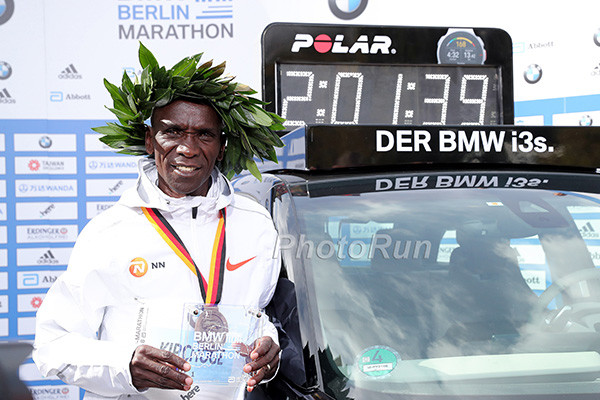
"I lack the words to describe how I feel," said Kipchoge. "It was really hard [during the last 17 kilometers] but I was truly prepared to run my own race.
I had to focus on the work I had put in in Kenya and that is what helped push me. I’m really grateful to my coaching team, my management, the organisation."
For the women, Gladys Cherono set a course record clocking 2:18:11. Second woman was Ruti Aga 2:18:34 and Trunesh Dibaba 2:18:55.
Login to leave a comment
Derek Clayton who held the World Marathon Record for 14 years, says shoes and pacemakers is why today's times are so fast
DID YOU KNOW: On June 12, 1965 Japan's Morio Shigematsu broke Abebe Bikila's world marathon record clocking 2:12:00 at the Polytechnic Marathon near London. Then on December 3, 1967 Australian's Derek Clayton shattered that record clocking 2:09:36 at the Fukuoka Marathon.
Derek was training over 250 miles a week and was clearly the world's best marathoner at that time. Then on May 30, 1969 he ran a marathon in Antwerp, Belgium mostly on cobble stones. He clocked 2:08:33 beating his own time by over a minute.
Skeptics throughout the following decades would speculate that the course must have been short. Yet only 11 days before his historic run in Belgium, Derek ran at high altitude and won a marathon in Turkey May 19th clocking 2:17:26.
“I had to run faster than I'd planned. If I hadn't run in Turkey I would have run 2:07 in Antwerp," Clayton said. "Maybe the course was short but Derek had nothing to do with that," says Bob Anderson, MBR & RW founder and a good friend of Derek.
"Any way, worse case scenario is that Derek held the world record he set in Fukuoka until Ron Hill ran faster (2:09:28) on July 23, 1970. That is two and half years.
Best case scenario, Derek held the world record for 14 years, until Robert De Castella ran 2:08:18 December 6, 1981 at Fukuoka. Derek was one of the world best marathoners of all times, the first under 2:10.
Yet even today when Derek's name comes up there is talk about the possible "short" course. I think it is about time we give him the credit that is due."
Yes, times today have gotten a lot better but there are two things that are clearly different today. "...the shoes they are wearing...and something I am dead set against, pacemakers," says Derek.
by Bob Anderson
Login to leave a comment


